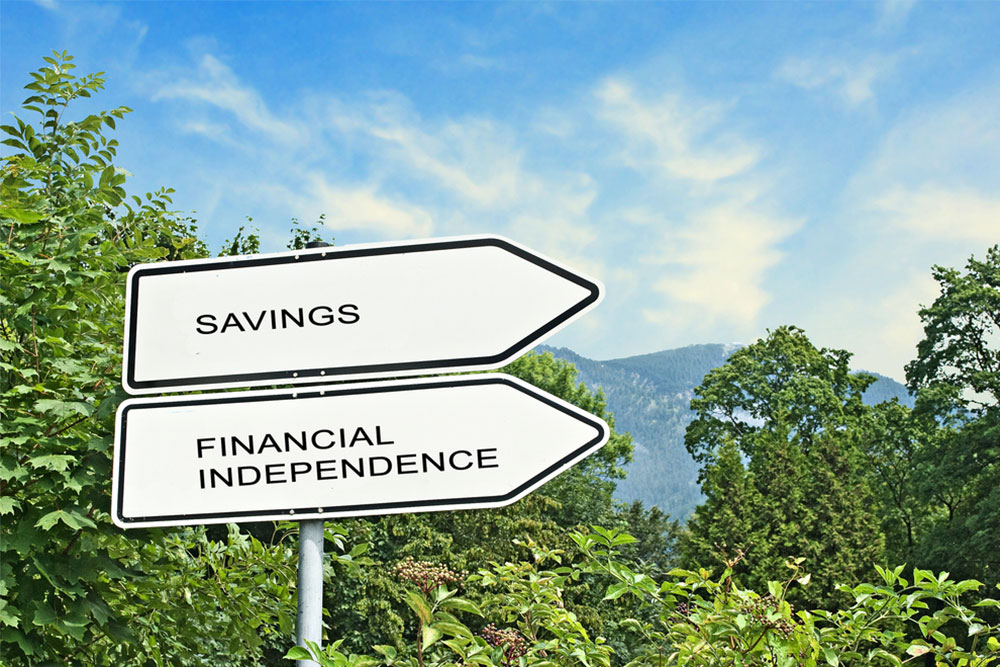There was a time when women were discouraged from seeking jobs or financial independence and security in any form. We may have come a long way from those times, thanks to better access to both education and job opportunities today, but there still exists a huge gender gap. In India, according to the World Economic Forum’s Gender Gap Report 2021, the share of women in professional and technical roles has declined to 29.2 per cent, with only 14.6 per cent women holding senior and managerial positions.
The report indicates that a high incidence of gender-based sex-selective practices – clearly meaning gender stereotypes that come in the way of getting and utilising professional opportunities – may be the biggest factor contributing to this situation. One of the many ways through which this situation may be changed, is financial literacy. Women not only need to understand the importance of being financially independent, but also need the technical know-how to be able to plan and reach for financial goals to improve their lives. Here’s everything you need to know about financial independence, why you need it right now, and how you can set out to get it.
What does financial independence even mean?
“Most people tend to confuse financial independence with the power to spend money NOW. That is not financial independence,” says Aakriti Seth, a chartered accountant and financial expert with 10 years of experience. “True financial independence is when a person is earning in the present, but saving enough for the future to retire or live life comfortably, even without a job, and maintain the same lifestyle.”
What’s more, your financial independence should be able to guarantee not just a comfortable standard of living (which is tailored according to your needs and choices) currently, but also give you the power to maintain this lifestyle – or improve it – later in life. Another thing you need to remember is that the earlier you start focusing on, and chasing, your financial independence, the more likely it is that you will be able to live comfortably later in life no matter what twists and turns life (or pandemics) throw your way.

Why do women need to be financially independent?
“Traditionally, women are known to be financially dependent as they have always been seen as the contributors to homemaking and home-keeping rather than the bread-winning part of life,” Seth explains. “This concept is fast-changing, and women have now proved they can successfully play a dual role.” However, playing a dual role both at home and at work – which basically means having two jobs instead of one – can also put a lot of pressure on women. “In the haste of working and taking care of daily-life needs, we often just live in the moment, and forget all about financial independence and why we need it so badly,” Seth adds.
What women need to remember is that thinking about the long term is even more vital for their survival and freedom later in life than it may be for men. The following are some reasons why.
• Limited job access: According to the World Bank’s 2014 report titled ‘Voice and Agency: Empowering women and girls for shared prosperity’, women still have access to a smaller range of jobs which have lower barriers to entry —meaning jobs and workplaces that are considered to be ‘safe’ or ‘appropriate’ for women, and therefore welcome women more easily. For example, you’d still be hard-pressed to find women in India leading construction projects or even mining ones.
• Shorter career span: The jobs that women do get access to tend to have less stability, lower wages, and less security. Women also tend to take more career breaks for maternity, caring for family and other life events, which increases the gender pay gap a lot. This also means that instead of the 40 or so years a man might get to become financially independent and secure his future, women get a shorter career span in most cases, and therefore may face more insecurities later in life.
• Performing unpaid jobs: The World Bank’s report also explains that an overwhelming number of girls and women worldwide also perform the work of caregiving for parents, partners, children and in-laws. This work is categorically unpaid, and often rewarded with insecurity, lack of care and poverty in old age. This holds true especially in middle- to low-income countries, where women are still the primary caregivers for a large part of the population.
• Longer life, lower financial literacy: Women have a higher life expectancy than men, and are often disproportionately affected by the loss of male family members or abandonment by the next generation. This is especially true for women who have been homemakers all their lives and haven’t had access to education, employment opportunities and/or financial rights at home. In the case of these women, the traditional financial bias and chauvinism leaves them without any idea of family assets, financial rights, or even monthly expenses and how to manage them.
• Pre-empting emergencies: The COVID-19 pandemic has taught many lessons, and one of the most important ones is that being prepared for emergencies – medical, professional, food or any other kind – can spell the difference between life and death. A financially independent woman can not only navigate through these crises, but also guide her family through them.
• Truly empowering: “Financial freedom can really boost the confidence of women as it puts them in the driver’s seat, and gives them a sense of control over themselves, their surroundings and situations, and even their families,” Seth says. “Financial independence not only empowers a woman now, but also empowers her tomorrow since she now has the security, trust in her own abilities and the confidence to fulfil her wants and needs.”

How much money do you need to be financially independent?
Once you’ve established the fact that gaining financial independence is a goal, you need to start working on immediately, your next question might be, “How much money do I need to be considered financially independent?” The answer depends completely on you, once you take charge of your finances. You need to calculate your current financial health, how many working years you have in total, what age you want to retire at, and the standard of living you want to maintain when you do. You also have to factor in your financial goals - which could range from buying a house or car to getting married, providing education to your children, helping them settle down, supporting your ageing parents, getting your kids married, etc. – and, most importantly, inflation and depreciation.
Not adding inflation and depreciation to your financial planning is a fatal mistake people often make. It’s important to remember that in India and many other countries, the average rate of inflation per year is at a whopping six per cent – which means the prices of most of your necessities are likely to go up every year, and so is the cost of your chosen lifestyle. On the other hand, assets like a house, car, computers, mobile phones, etc. go through depreciation almost every year, and require sufficient upkeep, maintenance and insurance. Your health is also a factor that goes through depreciation as age progresses, so appropriate insurances are a must.
Keeping all these factors in mind, you must calculate how much money per annum you are likely to require for your lifestyle, both pre- and post-retirement. Then, based on your current income, you need to budget your expenses, figure out the rate at which you need to save every month and the exact schemes or amount you need to invest to have a viable emergency and retirement fund. You could also ask a financial expert for advice, or use one of many easily available financial planning apps to make this assessment, and get started on the road to financial independence.